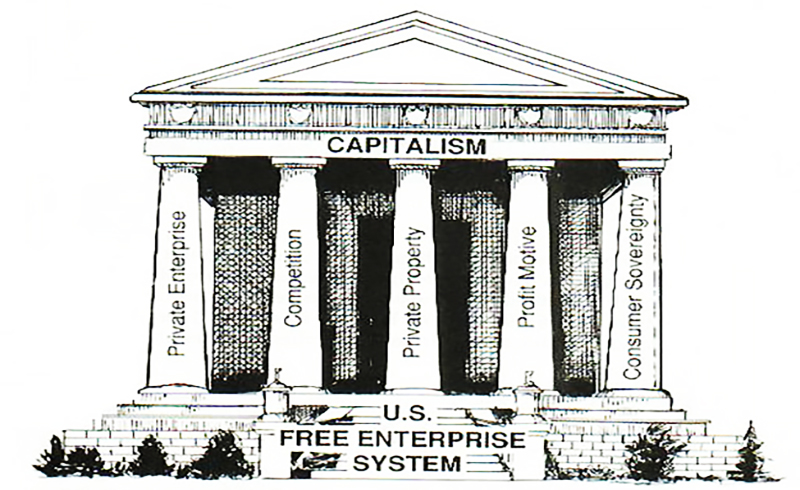Kerby Anderson
Although the concept of a free enterprise system developed primarily in Europe, it has become the most successful in the United States. Arthur Brooks, president of the American Enterprise Institute, has a possible explanation.
The founders promoted a free market where Americans were able to truly live their liberty. Thomas Jefferson famously said this in his first inaugural address. “A wise and frugal government which shall restrain men from injuring one another, shall leave them otherwise free to regulate their own pursuits of industry and improvement, and shall not take from the mouth of labor the bread it has earned. This is the sum of good government.”
People from other countries began to realize how exceptional America’s culture of free enterprise was. French nobleman Alexis deTocqueville called Americans ”the freest people in the world.” He was struck by the fact that Americans pursued their interests under the supervision of limited government and banded together in voluntary associations.
This is true to this day. According to Arthur Brooks, Europeans are half as likely as Americans to attribute success in their own life to their own efforts. He even suggests that some of this might even be genetic: it is part of the American DNA. We are a nation of immigrants. Immigrants tend to be entrepreneurs and willing to take risks for the possibility of prosperity.
Arthur Brooks contends that we live in a 70-30 nation. A Pew Research Center poll asked a broad range of Americans this question: “Generally, do you think people are better off in a free market economy?” Almost 70 percent of respondents agree that they are better off in a free market economy.
The good news is that 70 percent of Americans believe in free enterprise. The bad news is that the other 30 percent are in control of important arenas in our society such as the academy, media, and government. This will be our challenge for the years to come. 
 Listen Online
Listen Online Watch Online
Watch Online Find a Station in Your Area
Find a Station in Your Area










 Listen Now
Listen Now Watch Online
Watch Online
